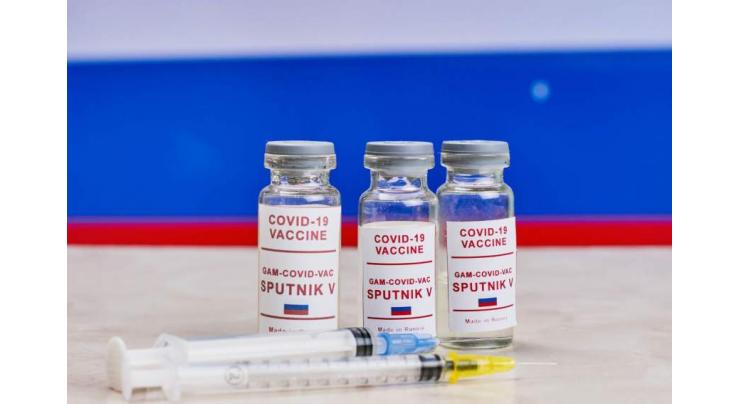
- Home
- Health
- News
- Russia's Sputnik Light Shows 78.6% Effectiveness in Buenos Aires Elderly Residents - Study
Russia's Sputnik Light Shows 78.6% Effectiveness In Buenos Aires Elderly Residents - Study
Umer Jamshaid Published September 13, 2021 | 01:34 PM

Russia's Sputnik Light single-component vaccine against the coronavirus demonstrated 78.6% effectiveness for preventing laboratory-confirmed infections among elderly residents of Argentina's Buenos Aires province
MOSCOW (UrduPoint News / Sputnik - 13th September, 2021) Russia's Sputnik Light single-component vaccine against the coronavirus demonstrated 78.6% effectiveness for preventing laboratory-confirmed infections among elderly residents of Argentina's Buenos Aires province, also showing 87.6% effectiveness for reducing hospitalizations and 84.8% effectiveness for preventing deaths, according to a study released in the EClinicalMedicine, published by The Lancet.
Authors of the retrospective cohort study analyzed over 40,000 individuals aged 60-79 who were inoculated with Sputnik Light and self-registered in Buenos Aires' online vaccination system in the period between December 29, 2020 and March 21, 2021. They compared infection, hospitalization and death rates of those vaccinated and unvaccinated.
"During the study period 415995 registered subjects received the first component of Gam-COVID-Vac; 40387 belonged to the 60-79 age group, and were compared to 38978 unvaccinated.
Vaccine effectiveness for preventing laboratory-confirmed infections was 78.6% ... and for reducing hospitalizations and deaths was, respectively, 87.6% ... and 84.8% ... Effectiveness was high across all subgroups," the study read.
According to the authors (representing the provincial health ministry in particular), this is the first published study of Sputnik Light effectiveness "in real life settings." Exactly this age group was considered, as "they were prioritized for vaccination in the guidelines proposed by the Argentine National Ministry of Health due to the increased risk of severe forms and mortality," the study read. Those aged over 80 were not included in the study as over 95% of them were inoculated by May 1, "leaving an insufficient number of unvaccinated subjects to compare with."
Related Topics
Recent Stories

WASA launches comprehensive campaign to test quality of water

Food Authority team conducts operation in Jackson market harbor area

KCP Captain Shahzaib Rind calls on Balochistan CM

PNCA to organize folk, classical & Sufi dance performances on Int'l Dance Day

Chief Minister Gilgit Baltistan Haji Gulbar Khan calls on Minister for Privatis ..

Germany nudges up growth forecast, ailing economy at 'turning point'

USC to hold ‘E-Kachehry' on April 25 (tomorrow)

Punjab Primary and Secondary Healthcare Department Minister Khawaja Imran Nazir ..

Kewell's Yokohama beat Ulsan to reach Asian Champions League final

DC directs to implement fixed prices of Naan,Tandoori Roti

Revised UAF budget recommended

Hajj permits start for domestic pilgrims in Saudi Arabia
More Stories From Health
-

Vaccines save at least 154 million lives in 50 years: WHO
2 hours ago -

UHS to issue MBBS degrees within three months after final result
5 hours ago -

Rawalpindi woman gives birth to six babies
5 days ago -

DC calls for intensive anti-polio drive in ICT
6 days ago -

World Hemophilia Day observed to underscore importance of providing comprehensive care
7 days ago -

Six in a family with heart on the 'right side'
7 days ago
-

Diabetic disease increasing rapidly : Dr. Noor Elahi Memon
7 days ago -

World Hemophilia Day observed
7 days ago -

ATC dismisses bail petition of doctor involved in illegal kidneys transplant
15 days ago -

Dr. Shehzad warns against deviation from WHO guidelines on anti-smoking
15 days ago -

Health activists express concerns over attempts to derail tobacco control
17 days ago -

UHS declares MBBS first prof, MS urology exam results
26 days ago











